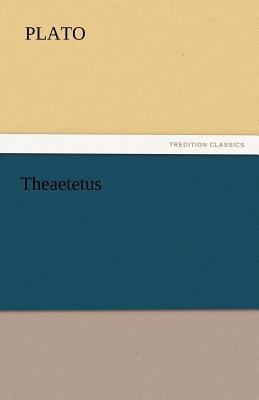All Formats & Editions
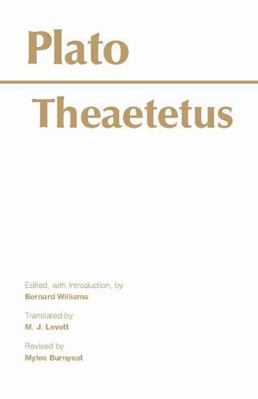
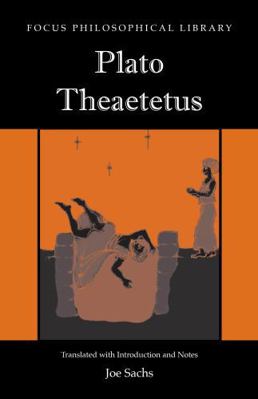
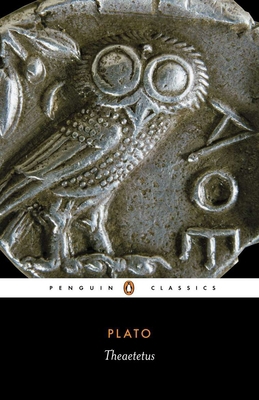
Theatetus
Set immediately prior to the trial and execution of Socrates in 399 BC, Theaetetus shows the great philosopher considering the nature of knowledge itself, in a debate with the geometrician Theodorus and his young follower Theaetetus. Their dialogue covers many questions, such...

Theaetetus (Clarendon Plato Series)
Theaetetus records the first critical attempt to come to grips with certain intricate and vexing problems of human knowledge. What is required in the interest of philosophy is a theory of knowledge. The historical importance of the Theaetetus is that the chief problems in this...
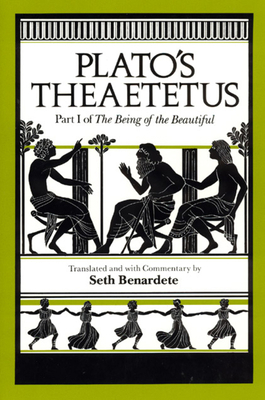
Plato's Theaetetus: Part I of The Being of the ...
Theaetetus, the Sophist, and the Statesman are a trilogy of Platonic dialogues that show Socrates formulating his conception of philosophy as he prepares the defense for his trial. Originally published together as The Being of the Beautiful, these...

The Theaetetus of Plato (Hackett Classics)
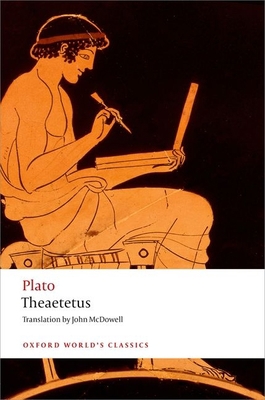
Theaetetus
'What exactly is knowledge?' The Theaetetus is a seminal text in the philosophy of knowledge, and is acknowledged as one of Plato's finest works. Cast as a conversation between Socrates and a clever but modest student, Theaetetus, it explores one of the...
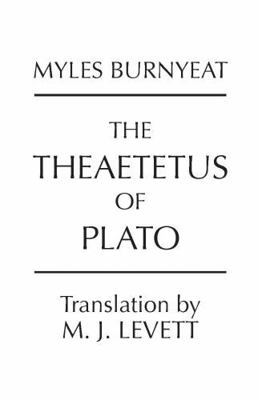
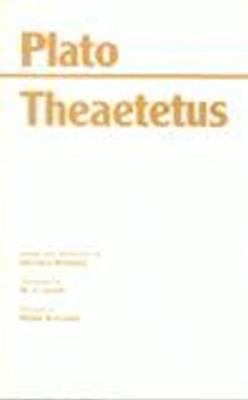
Theaetetus
M. J. Levett's elegant translation of Plato's Theaetetus , first published in 1928, is here revised by Myles Burnyeat to reflect contemporary standards of accuracy while retaining the style, imagery, and idiomatic speech for which the Levett translation is unparalleled. Bernard...
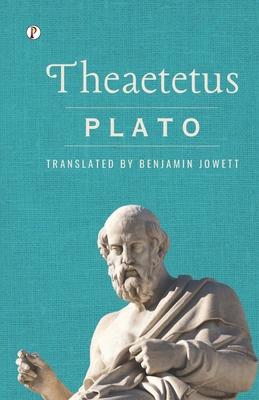
Theaetetus
Plato's Theaetetus is a philosophical dialogue that explores the nature of knowledge, perception, and the definition of truth. It takes its name from its central character, Theaetetus, a young mathematician whose understanding of knowledge is challenged and examined by Socrates...

Theaetetus
In this dialogue, Socrates and Theaetetus discuss the nature of knowledge. Specifically, three definitions of knowledge: knowledge as merely perception, knowledge as pure judgment, and, knowledge as a true judgment with an account. Ultimately the question is raised as to how...
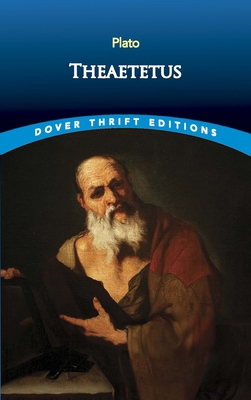
Theaetetus
What is knowledge? A systematic treatment of this question takes the form of a dialogue between the great philosopher Socrates and his student, Theaetetus. They explore a variety of answers, including knowledge as perception; knowledge as true belief; knowledge as true belief...
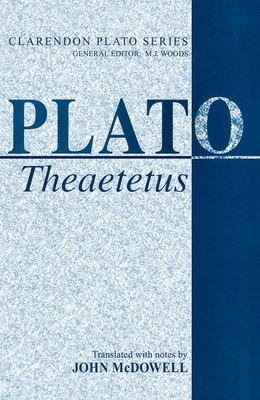
Theaetetus
This series is intended to serve the needs of philosophers and students of philosophy interested in Plato in much the same way as those interested in Aristotle are served by the well-known Clarendon Aristotle Series. Each volume contains a new translation (usually of a single,...

Theaetetus
Theaetetus by Plato - Socrates and Theaetetus discuss three definitions of knowledge: knowledge as being nothing but perception, knowledge as being true judgment, and, finally, knowledge as a true judgment with an account. Any profits made from the sale of this book will go towards...
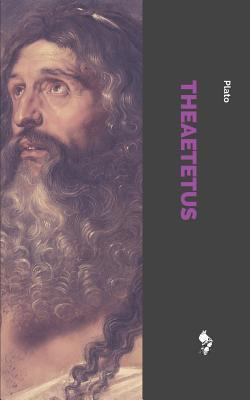
Theaetetus
Complete and unabridged paperback edition.


Theaetetus
In 427 B.C., the Ancient Greek city-state of Athens was flourishing. Approximately 80 years earlier, the Athenians had formed the first self-representative democracy in history, the Peloponnesian War against Sparta had only just started, and Socrates was only beginning to lay...
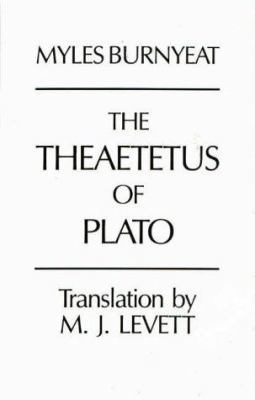
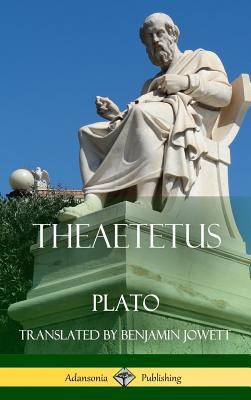
Theaetetus (Classics of Ancient Greek Philosoph...
Plato's dialogue Theaetetus asks the question of what knowledge is, how human beings acquire it, and how knowledge relates to both perception and judgement. This dialogue is told as a frame story, whereby Euclid and a friend are read a dialogue from the time Theaetetus was a...
![Theatetus of Plato [Greek, Ancient (to 1453)] 1018091769 Book Cover](https://i.thriftbooks.com/api/imagehandler/l/B6DD541546E76C85218BB933BBB7332A4FE16A8C.jpeg)
Theatetus of Plato [Greek, Ancient (to 1453)]
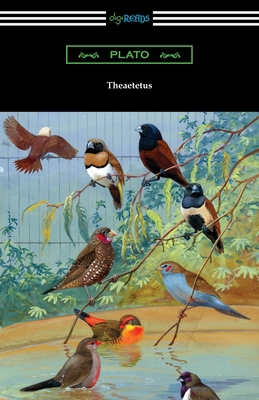
Theaetetus
"Theaetetus" is a dialogue by Plato from his middle period, written sometime around 369 BC. It is widely considered to be one of his best works and remains a significant contribution to the philosophy of knowledge. The work is framed as a dialogue between Socrates and a promising,...
![Platon, Oeuvres Completes: Tome VIII, 2e Partie... [French] 2251002243 Book Cover](https://m.media-amazon.com/images/I/317w9g4tV6L._SL500_.jpg)
Platon, Oeuvres Completes: Tome VIII, 2e Partie... [French]
Ces trois textes appartiennent aux dialogues metaphoriques du corpus platonicien et font de Platon un des premiers historiens de la philosophie . En effet ces trois dialogues, fictifs, sont une etude des oppositions foncieres de la pensee sous forme d'histoire synoptique de la...
![Teeteto [Portuguese] 1544942133 Book Cover](https://i.thriftbooks.com/api/imagehandler/l/CA678C05E2CE49CA5A38C425369A0CD8ABC4EED7.jpeg)
Teeteto [Portuguese]
um di logo plat nico sobre a natureza do conhecimento, talvez sendo apresentado pela primeira vez na Filosofia, o confronto entre verdade e relativismo.
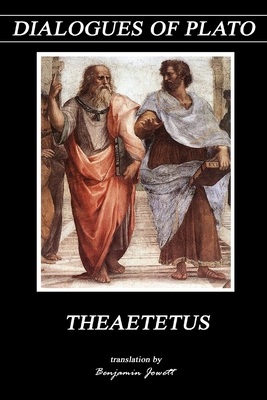
Theaetetus
EUCLID: Have you only just arrived from the country, Terpsion?TERPSION: No, I came some time ago: and I have been in the Agora looking for you, and wondering that I could not find you.EUCLID: But I was not in the city.TERPSION: Where then?EUCLID: As I was going down to the harbour,...
